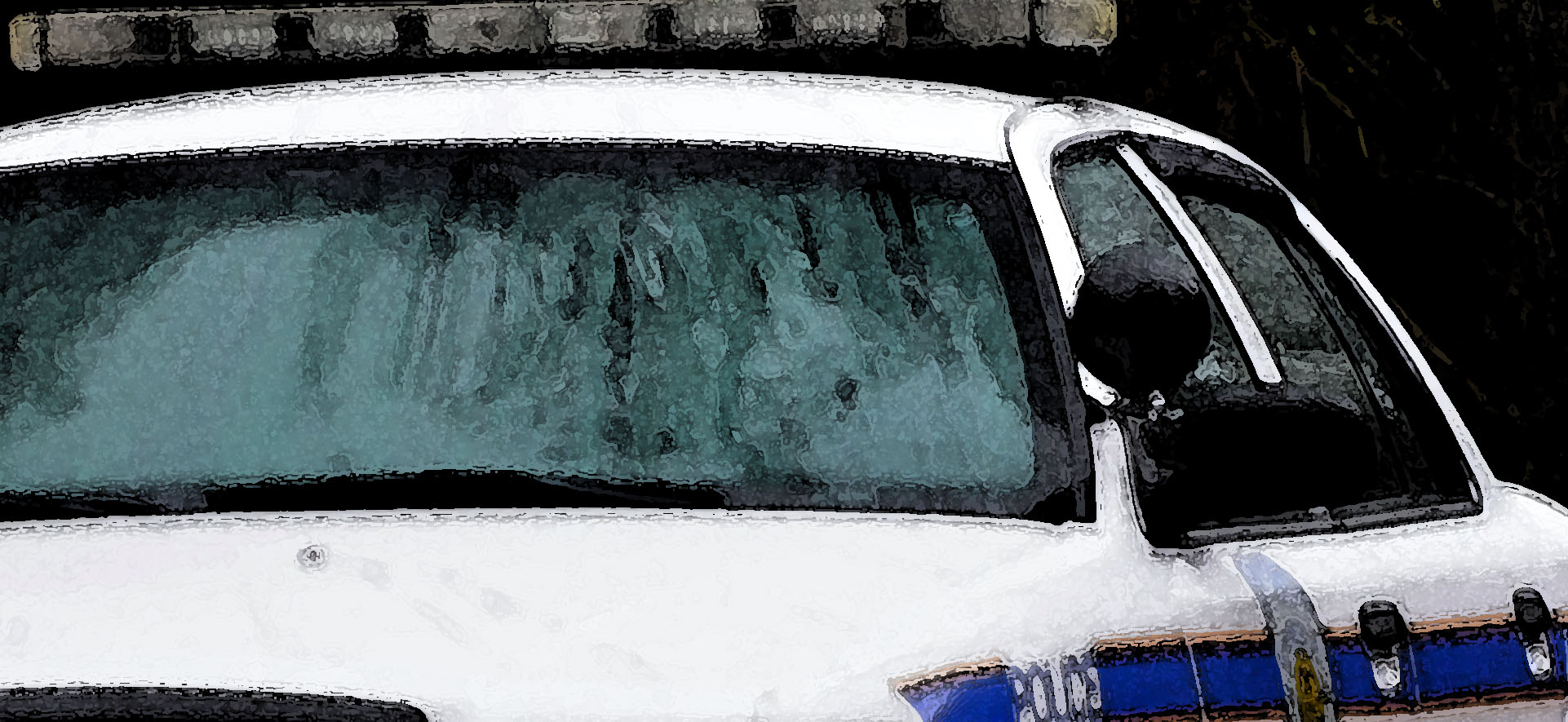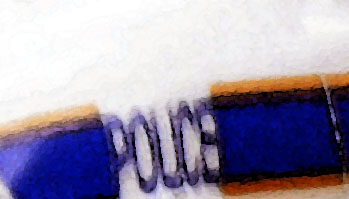|
 The loss of a fellow officer is always painful, and a cause for pause and reflection. Officers who fall in the line of duty are met with memorials of honor, tradition and ritual appropriate to fallen heroes. While such topics generate great emotion, different points of view, and even controversy, it is clear that dealing with the suicide of a fellow officer is much more complicated. The loss of a fellow officer is always painful, and a cause for pause and reflection. Officers who fall in the line of duty are met with memorials of honor, tradition and ritual appropriate to fallen heroes. While such topics generate great emotion, different points of view, and even controversy, it is clear that dealing with the suicide of a fellow officer is much more complicated.
Loss of fellow officers and soldiers weigh heavy on the mind and heart. If a good man or woman is shot down or dies in a fire while in the call of duty, their service is honored with much tribute. When one looks at the wake of suicide, words are never enough, and we struggle with many questions in our attempts to come at peace with the actions by a good person and what could have been done,
Ohara, Violanti, Levenson, and Clark (2013) ,in a series of national reviews of reports of officer suicides, reported a trend toward a declining rate of suicide, with slightly over 140 in 2008 and 2009 to 126 in 2012. As we try to reach and answer as to why these events occur, research indicates that officer suicides share many of the same human factors as the rest of the population. The most common factors involve depression, loss, marital difficulties, alcohol problems, and stress. In the 2012 study above, personal problems were reported to be a prevalent factor (83%) followed by work-related legal problems (13%). While there are some studies which demonstrate that police officers do not necessarily have suicide rates higher than their peers (Marzuk et. al., 2012), the simple fact remains our officers are human too.
Since the time of the initial publication of this article the US Department of Justice (USDOJ.gov)reported increased numbers of reported cases of suicide by law enforcement officers including 168 deaths in 2017, followed by 172 in 2018 and 228 in 2019. Some research has suggested that compared to civilians, law enforcement officers saw a 54% increase in suicide. It has been difficult to collect reliable data on the actual number of LEO suicides, but the Law Enforcement Suicide Data Collection Act was passed in June 2020 wiht the goal of better data collections to help prevent officer suicides. Nonprofit organizations including Blue H.E.L.P., the Police Executive Research Forum, and the International Association of Chiefs of Police, have also worked to collect statistics and compile resources for help and to help remove the stigma of seeking help.
My thoughts in dealing with such things is to cope with the helplessness of loss by reflecting on what can be done. What aid, training, tools and equipment can we bring to bear on the psychological thieves of our officers’ lives? Inoculation by education and discussion may help with prevention, but not all can be learned from a book or studies. Clearly, more is needed.
 Bill Jeans, who recently retired from a lifelong career as a soldier, sheriff’s officer, SWAT team member, and one of the country’s top firearm instructors has a real life appreciation of “warrior mindset” and many of the psychological aspects of training (I would echo his recommendation of Lt. Col. David Grossman’s book On Combat to all officers). A favorite phrase of his is “Learning is easy, but unlearning is hard”. Under stress most of us will not get creative. Instead, for better or worse, we are most likely to respond in a manner which we have previously repeated. Bill Jeans, who recently retired from a lifelong career as a soldier, sheriff’s officer, SWAT team member, and one of the country’s top firearm instructors has a real life appreciation of “warrior mindset” and many of the psychological aspects of training (I would echo his recommendation of Lt. Col. David Grossman’s book On Combat to all officers). A favorite phrase of his is “Learning is easy, but unlearning is hard”. Under stress most of us will not get creative. Instead, for better or worse, we are most likely to respond in a manner which we have previously repeated.
What lesson can we generalize from this as we face the foes of depression, marital conflict, alcohol abuse, loss, stress and other factors that take the toll on our officers? Educating officers that these can be treated and that most departments have confidential EAP program is only a good start. Kevlar, respirators, communications, technology, and the finest weapons help keep our officers safe from external threats. However, all of these require good training and habitual use to be effective. One must train and “practice like your life depends on it” (borrowing a favorite expression of Alan Gray, GPD). This practice and mindset is needed for skills, tactics and equipment to come together at the time it is needed. First responders and officers must come to practice seeking help through available resources well before it might be a life or death crisis.
Officers may be reluctant to seek assistance to face the villains of a variety of disruptive emotions and stress which rob our officers of not only quality of life, but sometimes their very lives. Deliberate practice, effort, and repetition is required to establishing a culture where psychologists are seen as “backups” and, in some sense, safety equipment. This is no less critical than the promotion of training to protect our officers from the more obvious foes. In this endeavor, officers must unlearn the avoidance of speaking to psychologists since this constitutes "bad practice" in the form of denial of the pains of being both human and a warrior. For some, this involves overcoming hundreds of repetitions of keeping the secrets of painful occupational experiences, marital problems, a developing drinking problem, sleep problems, sadness, anxiety, or depression to oneself, and risking self-disclosure. As with much other critical training, trust must be established.
Growth requires taking reasonable risks. This involves unlearning avoidance and replacing this with practice in establishing trust and a sense of comfort in dealing with emotions with a competent psychologist*. This may be a harder goal to achieve for seasoned officers who may have more to unlearn. There is hope the law enforcement organizational and peer leader’s efforts to encourage better support-seeking habits in young officers and first responders through employee assistance programs (EAP) and other resources is having a positive impact.
Psychologists have long known that modeling behavior in terms of seeking help for oneself when needed, and demonstrating a positive outcome can have a much stronger impact that simple education or lectures. Prior practice and experience is likely to determine whether an officer masters the challenge, seeks help, and survives unharmed. Simply put, this means we should be encouraging our officers to seek assistance well before they desperately need it. Developing comfort in establishing a relationship with a psychological provider may be the best way to ensure there will be no hesitancy to call for this important form of back up, when it is needed, and before all perspective and ability to solve problems flexibly is lost.
 Warriors have long traditions of wielding shields to protect their brothers or sisters in arms to face and defeat hostile foe. This is epitomized in Trojan lore and well conveyed in Pressfield’s Gates of Fire. Warriors and first responders head into the unknown dangers to protect and rescue strangers from those who might wish them harm, fires, or to provide life-saving aid to those in need. Warriors have long traditions of wielding shields to protect their brothers or sisters in arms to face and defeat hostile foe. This is epitomized in Trojan lore and well conveyed in Pressfield’s Gates of Fire. Warriors and first responders head into the unknown dangers to protect and rescue strangers from those who might wish them harm, fires, or to provide life-saving aid to those in need.
Support from brothers and sisters-in-arms is certainly important for assisting with the nature of an officer’s life and occupation. In their review of studies of officer suicides, Ohara et al, (2013) emphasize the importance of periodic, proactive, voluntary therapy and stress of training officers in resilience and healthy self-care, stating “It is crucial that this training begin at the recruit level and continue throughout the officer's career, focusing new and incumbent officers not only on the challenges to be faced, but on the personal skills, talents and resources they have available to them”.
An organizational leader or fellow officer modeling seeking out help before it is life and death, and disclosing may save brothers and sisters on your side when they face a more serious threat. The support of fellow officers and that of psychologists will never save everyone, but in reflecting on the helplessness one faces in the wake of a difficult loss it is what can be done.
At the end of this article I have included a list of possible resources for officers, survivors and the departments charged with the solemn duty of the care of those who serve.
*I use the term psychologists deliberately here. There are varying mental health professionals. But using the best trained, doctoral-level mental health providers versus less trained providers is, in my opinion, is of the same importance as selecting the best and most accurate resources you can afford and bring to bear in life-and-death scenarios).
Resources for Suicide Training for Law Enforcement Departments:
Resources for Survivors
 On the Edge: Recent Perspectives on Police Suicide by John Violanti, Andrew O'Hare, and Teresa Tate (Charles C. Thomas, 2011). On the Edge: Recent Perspectives on Police Suicide by John Violanti, Andrew O'Hare, and Teresa Tate (Charles C. Thomas, 2011).
Andy O’Hara, Badge of Life, Tracking Police Suicides 2008, 2009.
Kevin M. Gilmartin, Emotional Survival for Law Enforcement (E-S Presss, 2002)
Marzuk, P., Nock, M., Leon, A, Portera, L., and Tardiff, K. Suicide Among New York City Police Officers, 1977–1996 Am J Psychiatry 2002;159:2069-2071. doi:10.1176/appi.ajp.159.12.2069
Ohara, Violanti, Levenson, and Clark. National Police Suicide Estimates: Web Surveillance Study III. International Journal of Emergency Mental Health and Human ReSilience, Vol. 15, No.1, pp. 31-38, 2013
Police Suicide: Epidemic in Blue (Second Edition) by John Violanti (Charles C. Thomas Publisher, 2007)
Police Suicide: Tactics for Prevention by Dell P. Hackett and John M. Violanti (Charles C. Thomas Publisher, 2003)
CopShock (Second Edition) by Allen Kates (Holbrook Street Press, 2010).
Stress Management in Law Enforcement (Second Edition), by Leonard Territo and James D. Sewell (Carolina Academic Press, 2007).
United States Department of Justice.USDOJ.GOV Law Enforcement Offcer Suicide -
ABC NEWS 2019 Record number of US police officers died by suicide in 2019
Law Enforcement Officer Suicides: Risk Factors and Limitations
Help-Lines Online Discussion Lists
(send emails to the addresses below to be added to the discussion lists)
- Survivors of Law Enforcement Suicide (survivors only) TOAC_SOLES@yahoogroups.com
- Tears of a Cop (law enforcement officers only) tearsofacop@yahoogroups.com
- COP2COP help-line 1-866-COP-2COP (1-866-267-2267).
-
BlueHelp.Org
 Officer Addiction/Alcohol Use/Marital: Officer Addiction/Alcohol Use/Marital:
http://lawenforcementtoday.com/tag/addiction-among-law-enforcement-officers/
Willman, E.A., Alcohol use among law enforcement. The Journal of Law Enforcement 2 (3) 11-4. www.jghcs.info [ISSN 2161-0231]
Westphal, G., and Openshaw L. Law Enforcement Healthy Marriage and Family Project. The Police Chief, vol. LXXVI, no. 1, January 2009.
McCoy, Shawn P. & Aamodt, Michael G. A Comparison of Law Enforcement Divorce Rates with Those of Other Occupations. J Police Crim Psych (2010) 25:1–16
Related Articles on this Websites
Firefighter and First Responder Alcohol and Drug Issues
Signs of alcohol or drug intoxication, impairment and after-effects
Resources, education, websites, and crisis lines for firefighters, law enforcement officers, and other first responders
Treatment principals and stages in treatment of alcohol and substance use disorders.
About the Author:
 Ernest J. Bordini, Ph.D. has more than 30 years of training and service in the evaluation and treatment of veterans, law enforcement officers and first responders. He is a member of the American Psychological Association Society of Military Psychology and a member of the City of Gainesville Violence Avoidance Task Force. In addition to his primary area of practice in clinical and forensic neuropsychology he has special interests in violence risk assessment, and officer-involved shootings. In his limited spare time, he enjoys tactical and defensive firearm training and is an NRA certified Firearm Instructor. Ernest J. Bordini, Ph.D. has more than 30 years of training and service in the evaluation and treatment of veterans, law enforcement officers and first responders. He is a member of the American Psychological Association Society of Military Psychology and a member of the City of Gainesville Violence Avoidance Task Force. In addition to his primary area of practice in clinical and forensic neuropsychology he has special interests in violence risk assessment, and officer-involved shootings. In his limited spare time, he enjoys tactical and defensive firearm training and is an NRA certified Firearm Instructor.
|
|

